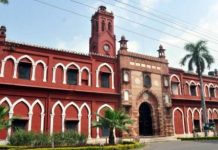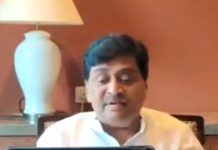
Now that Erdogan has won Turkish Presidential election for the fifth consecutive term, he must gear up to face an almost equally tough challenge to secure his place as a leader who changed the course of history.
Modern Turkey, going to complete 100 years of its founding on October 29, 1923, by Kemal Ataturk, an officer of the Ottoman army after the country’s crushing defeat in World War-I, experienced a very exciting Presidential election on May 14. The election process was watched with considerable interest not only by Turks but also the rest of the world, particularly Europe, parts of Asia and the US. It was, perhaps, the toughest fight between Islamism and secularism after the emergence of Recep Tayyip Erdogan of the Justice and Development Party (AKP) as the longest surviving executive head (first as Prime Minister and then as President) of Turkey after Ataturk.
Erdogan had to employ all kinds of tricks to emerge victorious with a 52.1 per cent vote share in a runoff election on May 28 for a fifth consecutive term of five years. It was not any easy victory as the country had been suffering from numerous problems, including hyper-inflation, with the Erdogan government unable to find effective remedies.
Erdogan’s main challenger, Kemal Kilicdaroglu of the Republican People’s Party, secured 47.9 per cent of the votes polled despite being a very weak opposition candidate, representing the Kemalists.
There is a clear indication that the Turkish Presidential election result this time could have led to an end to the Erdogan era if the most popular Kemalist leader, Ekram Imamoglu, a former mayor of Istanbul, would have been there in the ring. He was jailed for two years in December 2022 on a charge of “insulting public figures”. It is alleged that Erdogan’s party influenced the court verdict against Imamoglu as he was considered the game changer by the ruling AKP. According to opinion polls, Imamoglu had acquired enough following to defeat Erdogan as he had trounced the ruling AKP in the Istanbul mayoral elections in 2019 with a comfortable margin, undoubtedly a surprising performance.
Erdogan reportedly had the realisation that a strong anti-incumbency factor was working against him. After all, he has been controlling the levers of power in his country since 2002. That is why he left nothing to chance and ensured that his candidature got projected in a manner so that the Turks were convinced that the country could slide into an uncontrollable chaos with the people’s economic woes getting worse if the Kemalist forces captured power again.
The tactic that is believed to have proved to be most effective was an almost total control of Turkey’s important media outlets. Erdogan asked the Media and Communications head at the Presidential palace, Fahrettin Altun, to ensure that he got a good press and his principal opponent, Kilicdaroglu, was projected as a poor administrator, who would take Turkey back to the days when there was different kinds of curbs imposed to keep the country’s secular character intact. People got scared that rigorous restrictions on religious practices would be reimposed once the Kemalist party came to power.
The fear psychosis affected the thinking of women more than men as the former thought that they would not be able to use hijab again in public places as they do now. Kilicdaroglu and his party did not highlight the Kemalist secular ideology’s achievements in modern Turkey because the masses dread the persecution they suffered in the name of secularism in the twentieth century. Yet there was a massive campaign that if Kilicdaroglu got victorious in the Presidential election, the government might resort to persecution in the name of secularism with the help of the army, and Turkey would be back to where it was before the Erdogan era began in 2002.
Religion has a tight control on the Turks’ lives as a result of the freedoms allowed during Erdogan’s rule despite the Kemalist forces having remained in power till 2002, when the AKP led by Erdogan won the elections for the first time and began to change the system according to his own scheme of things. The most important step that he took was clipping the wings of the Turkish army, till then the ultimate guardian of the constitution. This meant that whenever the army saw a threat to secularism as outlined by Kemal Ataturk, the military could legally overthrow the country’s elected representatives and run the government till it wished. Through a country-wide referendum, Erdogan got the constitution amended to take away this most significant power of the military.
Keeping all these factors in view, Erdogan focused more on media management than anything else to win the crucial election. His party (the AKP) did not face much difficulty in media management as most major newspapers and TV channels are owned by either Erdogan’s family members or his relatives. It was, therefore, not surprising that he was allowed more air time to express his views on TV news channels than Kilicdaroglu. Erdogan’s media department effectively managed social media platforms like Twitter, most popular in Turkey, to make him appear as the messiah of the masses. He was described as a world leader, who was responsible for massive infrastructure development like airports and highways. Kilicdaroglu was made to appear that he was an inept administrator, whose rule may take Turkey backwards, resulting in a loss of the confidence of the countries like Russia, China and most West Asian nations which had invested heavily in Turkey.
Interestingly, Turkey, a NATO member, is not in the good books of the US and the European Union. Despite its assertion that historically, the leadership of the Sunni Muslim world belonged to Ankara and not to Riyadh, it has developed friendly relations with Saudi Arabia. It is very close to Iran, too, as Turkish banks had earlier helped Teheran to get payments for its oil and gas exports following the economic sanctions imposed by the US and the European Union.
Now that Erdogan has won the Turkish Presidential election for the fifth consecutive term of five years as allowed under the country’s constitution, he must prepare himself to face an almost equally tough challenge to secure his place as a leader who changed the course of history. The Kemalists or secularists, who have demonstrated only a little less following than the Erdogan-led Islamists, are unlikely to remain quiet if inflation does not come down considerably.
The inflation in Turkey, which has been over 50 per cent for some time, may make people’s lives too horrible to bear. The high level of inflation may cripple the Turkish economy if not brought to a tolerable level soon. Now Erdogan is likely to approach Turkey’s friendly countries like China, Saudi Arabia and the UAE to come to Ankara’s rescue. How far they lend their helping hand remains to be seen.
Erdogan’s appeal for liberal financial aid from friendly countries is based on the logic that it has been suffering all these years at the hands of the US and the EU owing to its independent stand on various global issues like the crisis in Syria and the Russia-Ukraine war.
The EU has been denying its membership to Turkey on various pretexts, and the US imposed economic sanctions on Ankara following the arrest of North Carolina’s evangelist, Andrew Brunson, on a charge of the pastor having close links with elements considered “forces of destabilisation”. Though the Turkish government released Brunson and allowed him to go back home in the recent past, Washington DC and Ankara continue to have hostile relations. That is why it will remain a herculean task for Erdogan to get Turkey’s status as the “Sick Man of Europe” changed.












